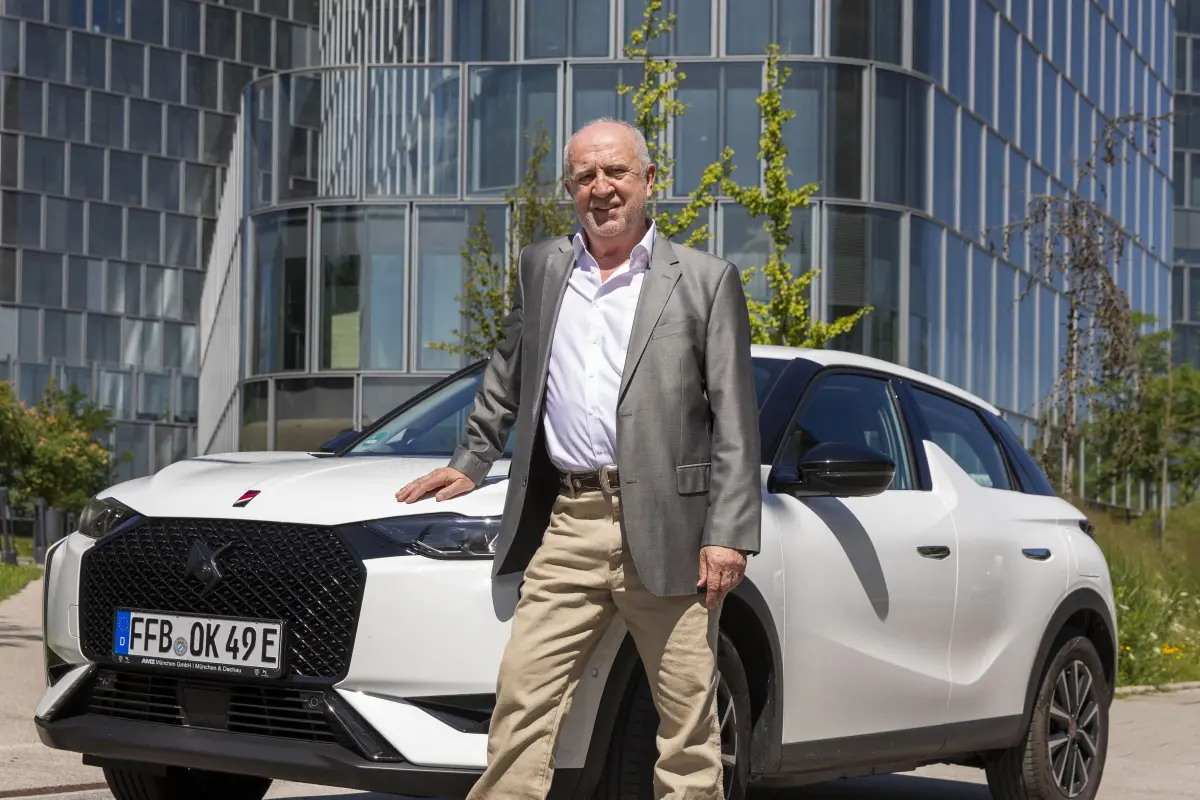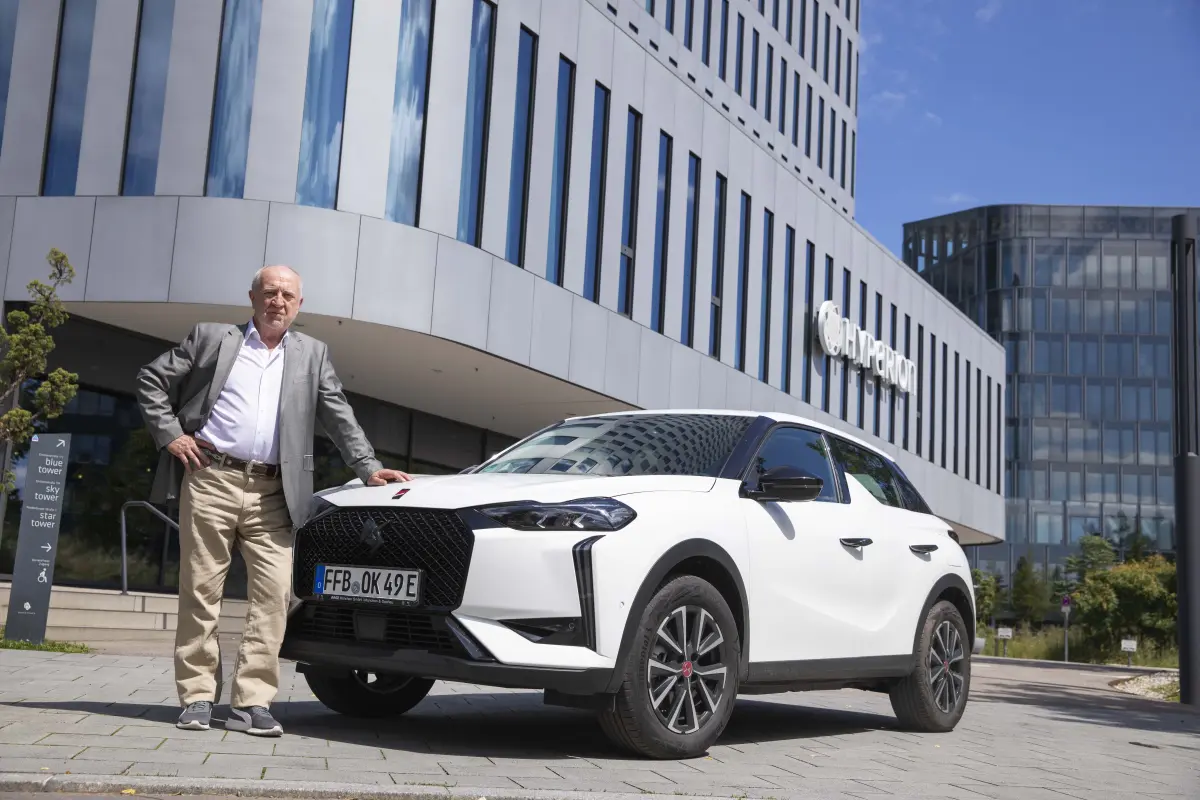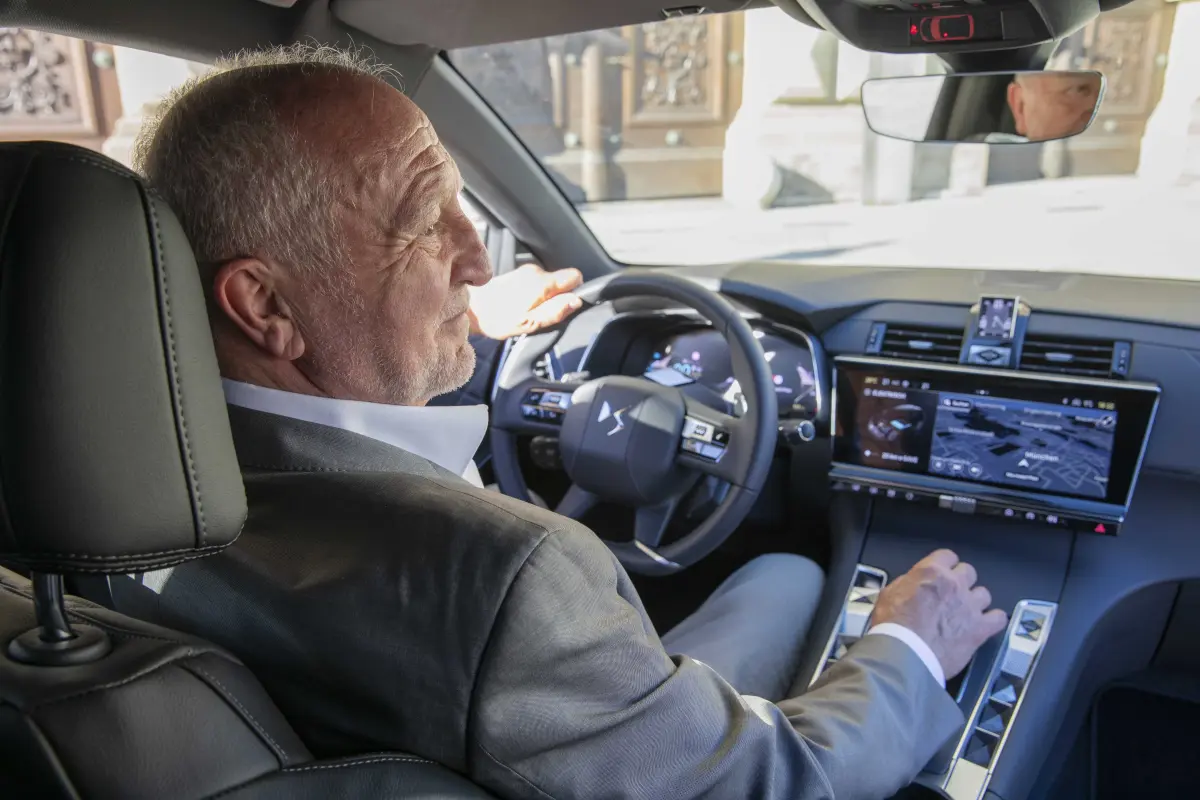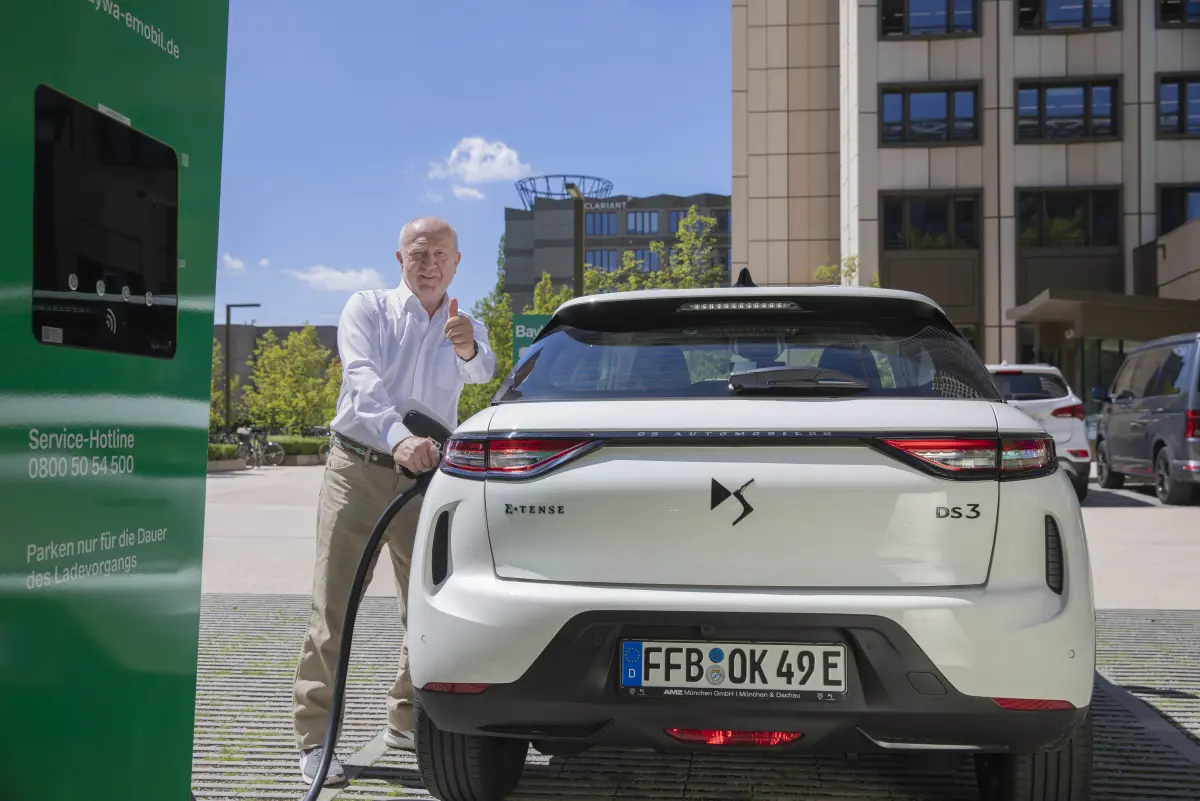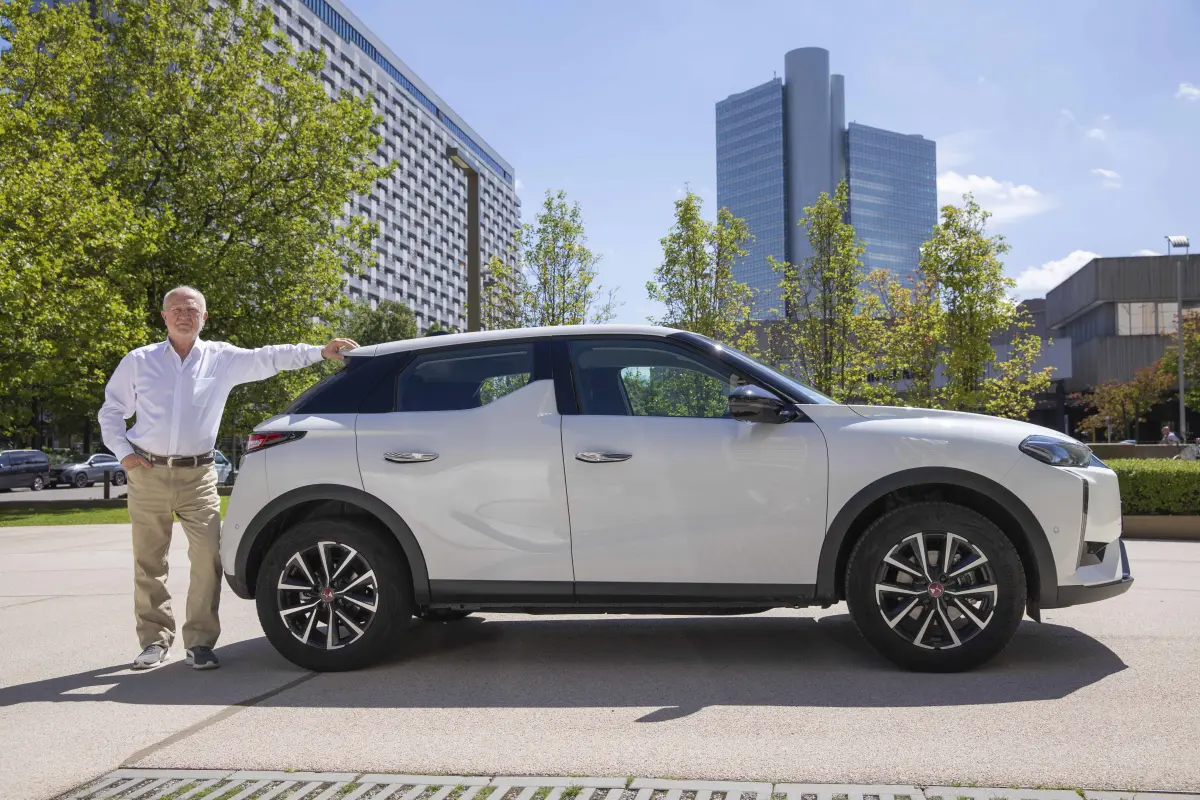We met with one of the most important pioneers and instigators of fine cuisine in Germany to talk to him about his exciting career, his commitment to quality and sustainability, and his enthusiasm for his new, electric vehicle of French origin.
In the 1980s, a long overdue change took place in German gastronomy, toward more imaginative creations made from fresh, regional products. At that time, leading media began to publish restaurant reviews; the names of top local chefs became public, and the establishments in which they celebrated their art became places of longing for more and more epicureans, for whom food meant more than mere ingestion.
Speaking of longing: The author of these lines still remembers well his early visits to trade fairs when the top restaurant "Le Gourmet" was located diagonally opposite the former venue on Munich's Theresienhöhe. And whenever his gaze wandered over there from the main entrance, he resolved to visit this temple of fine dining in the event of a particularly pleasing occasion and a well-filled wallet. Unfortunately, it remained in the end with the intention, but the name of the owner and kitchen artist Otto Koch was thus firmly anchored in the memory. Especially because of the outstanding role the top chef played as an ambassador of good taste in the German quality revolution over the decades.
Counter design: The other TV chef
Regardless of the fact that fewer and fewer people seem to be standing at the stove themselves and taking the trouble or indulging in the pleasure of preparing dishes with fresh products themselves, there is a veritable inflation of various cooking formats on public and, most recently, private TV stations. And since these are increasingly garnished with show elements, they often feature egomaniacal self-promoters with celebrity airs. After just a few moments of talking to Otto Koch, it becomes clear that he is the complete antithesis of many a "kitchen clown": unpretentious, relaxed and confident, always conveying his credo, namely the pursuit of the highest quality.
The top chef received his first Michelin star as early as 1976, and he then became known to a wider public in the 1990s through his participation in the 27-part cooking series "Zu Gast bei Christiane Herzog" with the wife of the then German president. From 1998 to 2021, an incredible 940 broadcasts of "ARD Buffet" followed. The focus was on craftsmanship, creativity, good ingredients and ultimately a tasty dish - and not the chef. The aim was to get as many people as possible excited about good food, even beyond gourmet pretensions, and to encourage them to prepare fine dishes themselves.
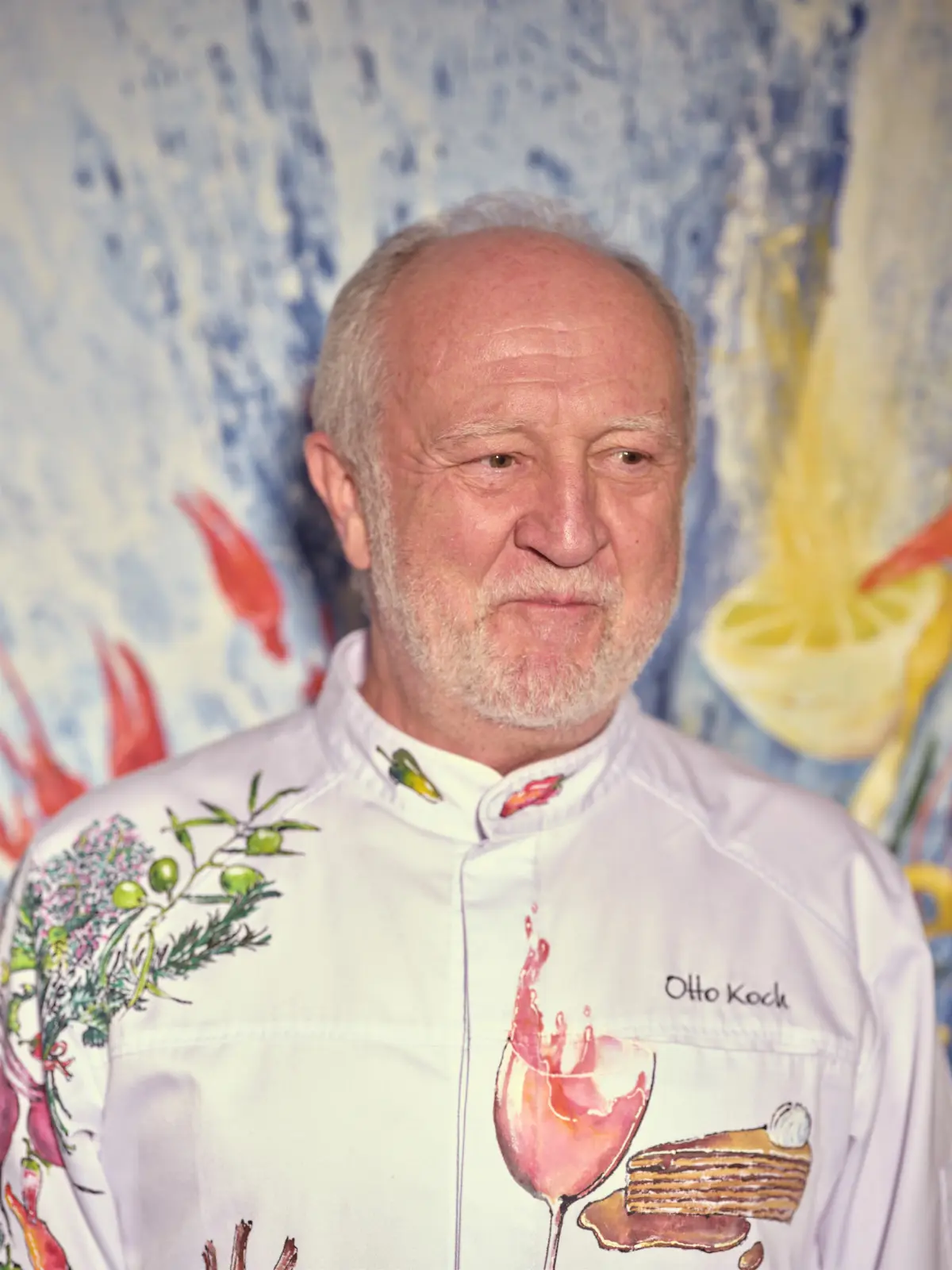
When researching the person Otto Koch, one repeatedly finds statements from his companions as well as from later successful and well-known students with the same tenor. They always describe him as a trusting boss with a liberal management style that was unusual, especially at that time. When asked about the sometimes still gruff "barracks tone" in top gastronomy today, Koch refers to his inspiration by the therapeutic "Hakomi method," which is characterized by the claim of non-violence, including the renunciation of suggestion, pressure and confrontation. The former chef and current gastronomy consultant with pedagogical impetus says to his employees: "If anyone yells here, it's me - and I don't yell.
From embarrassment apprentice to quality ambassador
In his birthplace of Gröbenzell near Munich, Koch's parents once ran a small grocer's store that was highly regarded by customers for its excellent food. To maintain the quality level, they drove to the Munich wholesale market every day to stock up on fresh victuals. The assessment of good food and the careful handling of foodstuffs were therefore ingrained in the young Otto. The fact that he was later to devote himself to their preparation can be traced back to a special coincidence. The first chapter of his life plan originally included studying psychology in the USA. To finance it, he wanted to work part-time. Since he wanted to avoid compromising his learning success, he considered an occupation that he could pursue in the later evening and night hours. Because this is almost only possible in the restaurant business, he booked a short apprenticeship as a chef in preparation for his adventure in America, during which not only did he himself discover his culinary passion, but his talent was also recognized and encouraged by his instructor and later mentor Siegfried Schaber of the Regina Palast Hotel in Munich. Inflamed for the chosen profession, it was now a matter of escaping the compulsory military service that stood in the way of his ambitions, which prompted him to further develop his skills and knowledge in Switzerland. In this environment, which has always been predestined for ambitious chefs, Otto Koch eventually spent five years at the Wallberg Restaurant in Zurich, as well as in St. Moritz at the Carlton Hotel and the Kulm Hotel. It was at the à Point restaurant in Basel that he finally came into contact with star cuisine and knew from then on that this was where he would find his professional home. The next logical step then brought him to France, where he was able to further develop and refine his creative style in the three-star restaurants L'Oasis near Cannes and "Taillevent" in Paris. A completely independent style in which he was inspired by role models, but never even rudimentarily copied their creations.
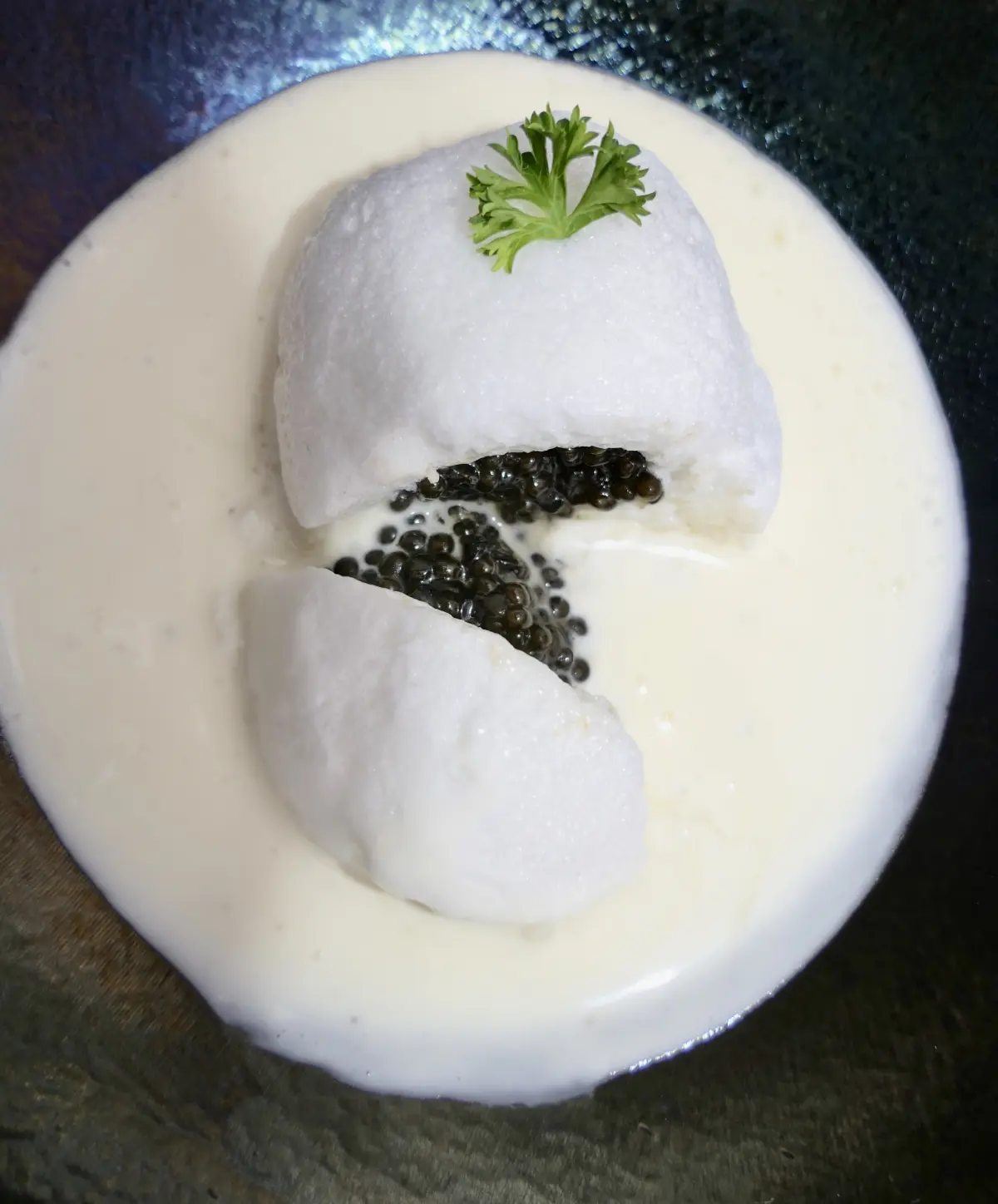
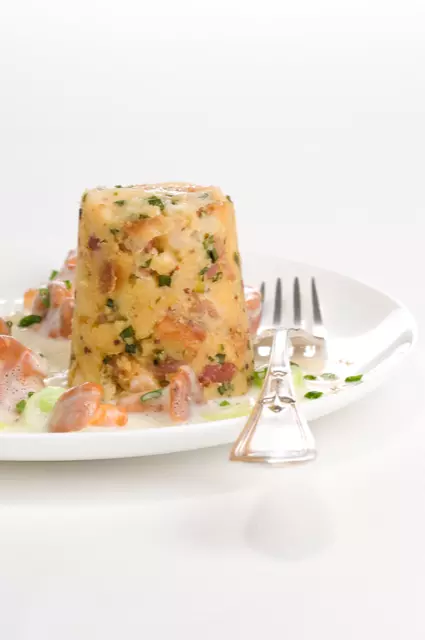

Back in Munich
Equipped with his wealth of experience, an original profile and, thanks to legal tricks, a classification as a substitute reservist, Otto Koch finally returned home. And although he was committed to top-class gastronomy, he initially opened a simple pub called "Mei Küch" (German for "My Kitchen"), which, however, served unusual interpretations of Bavarian dishes. When one day the critic icon Wolfram Siebeck surprisingly indulged in his tripe for 6.90 DM and described his taste experience hymn-like on 1.5 pages, Otto Koch then flipped the switch, refined the dish with champagne and morels and subsequently sold 1000 portions of it - at four times the price. In the same premises as before, but from now on under a name that corresponded to the level of his cuisine: Le Gourmet.
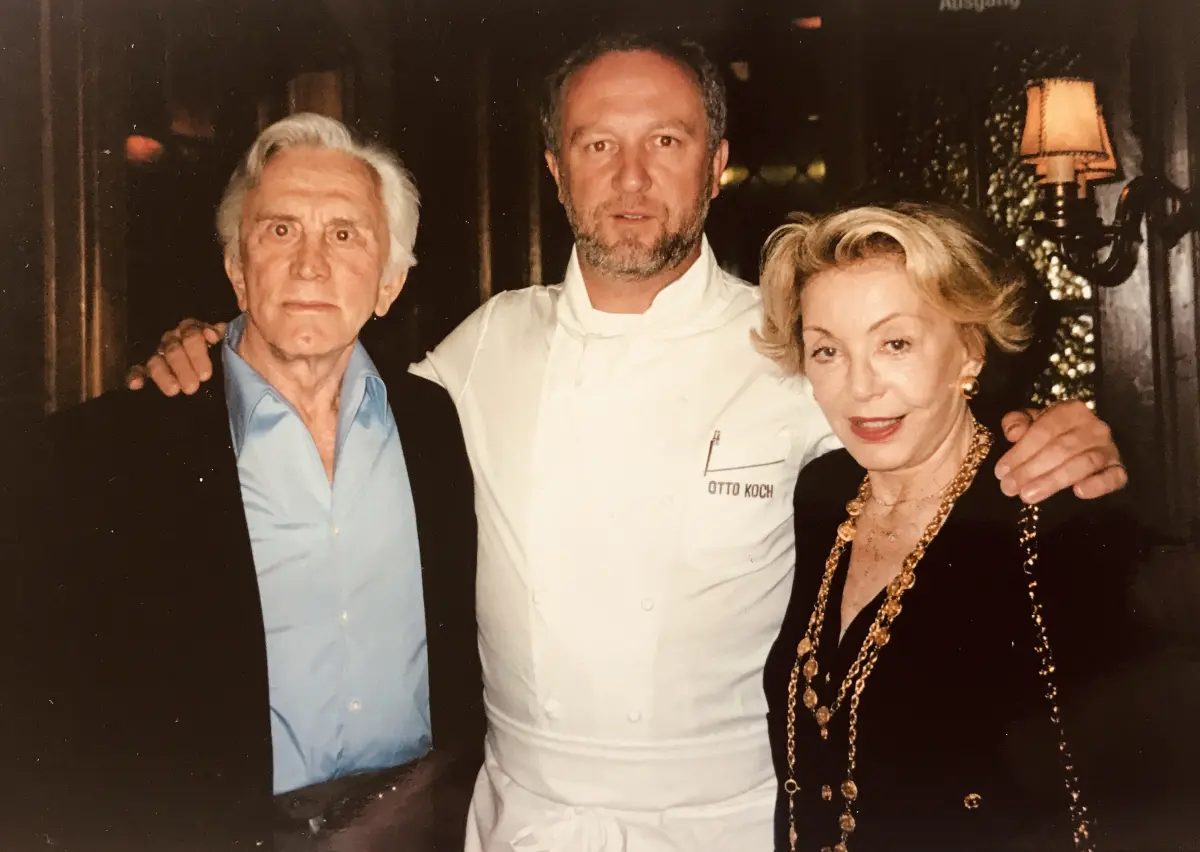
In 1989, the restaurant moved to Haus Schwarzwälder with three restaurants in downtown Munich. However, the new location brought with it a number of disadvantages, including a non-existent terrace, outdated building services and a lack of nearby parking. The adverse conditions ultimately led to the closure of the business in 1995.
From October 2009 to the end of 2014, numerous friends of fine cuisine from Munich and abroad made a pilgrimage to one of the most unusual culinary locations in the country, located high up on the Munich Olympic Tower in the form of a "revolving restaurant" with a 360° panoramic view. At that time, Otto Koch was the patron of the star-decorated top cuisine in the "181 First," named after the tower's altitude in meters.
The pioneer
The closure of "le Gourmet" also marked the starting point of his career as a television chef. In addition, Otto Koch worked as a gourmet chef and culinary consultant at Robinson, celebrated his creations on cruise ships such as the MS Europa and the spectacular 5-masted sailing ship "Royal Clipper" and finally took over the kitchen of the gourmet restaurant "KochArt" in Zürs, Austria, each winter from 2002-2009. There he not only achieved his obligatory Michelin star, but also the first organic certification of a restaurant in the German-speaking world. Even during his time in Munich, his brother supplied him with vegetables, ducks, geese and pigs from free-range cultivation or species-appropriate pasture farming from his home in Gröbenzell. This means that Otto Koch is not only interested in the quality of the products, but also in how they are produced. But he is not only a pioneer and trailblazer of top gastronomy in Germany, but also a trailblazer when it comes to implementing an intelligent inventory management system in his business. Long before other restaurateurs even recognized the relevance of such a tool, the resourceful Bavarian tinkered with his own accounting program with the help of two, at that time sinfully expensive, Commodore computers, in order to obtain an overview of his purchase prices, other expenditure items and, last but not least, the optimum scope of his use of goods. In this way, he not only gained control over the various economic items, but also ensured that less and less food ended up in the waste garbage can.
The inspirer, teacher and mentor
Early on, Koch, together with Wolfram Siebeck and the top chefs Eckart Witzigmann, Dieter Biesler and Hans-Peter Wodarz, founded the interest group "New Chefs," which issued the striking slogan of "unconditional quality" of light. unadulterated dishes with first-class fresh ingredients. The association, which was later dissolved, served primarily as a platform for a fruitful mutual exchange.
Then, in 1997, under the leadership of Otto Koch, a number of ambitious, up-and-coming chefs set up the "Junge Wilden" association with the aim of getting people excited about cooking and promoting the profession of chef. In addition, the association forms a promotion and networking forum for talented young chefs. Today, the former initiator is still one of the jurors of the award, which the association presents to dedicated chefs under 30 who are willing to break the rules with passion and fun for cooking. Consequently, the award does not focus on star cuisine, but rather on new ideas, creativity and the courage to create unconventional combinations.
As he used to do in Germany, Europe, Egypt, the Maldives, Bali, Japan or the USA, the busy non-retiree is still active today as a culinary consultant. He also organizes private "KochKurse" (cooking courses) and "KochAbende" (cooking evenings) for small groups of up to eight people in his newly designed "KochStudio" in Gröbenzell. His offer even includes online courses and seminars for gastronomic professionals under the name "École Culinaire".
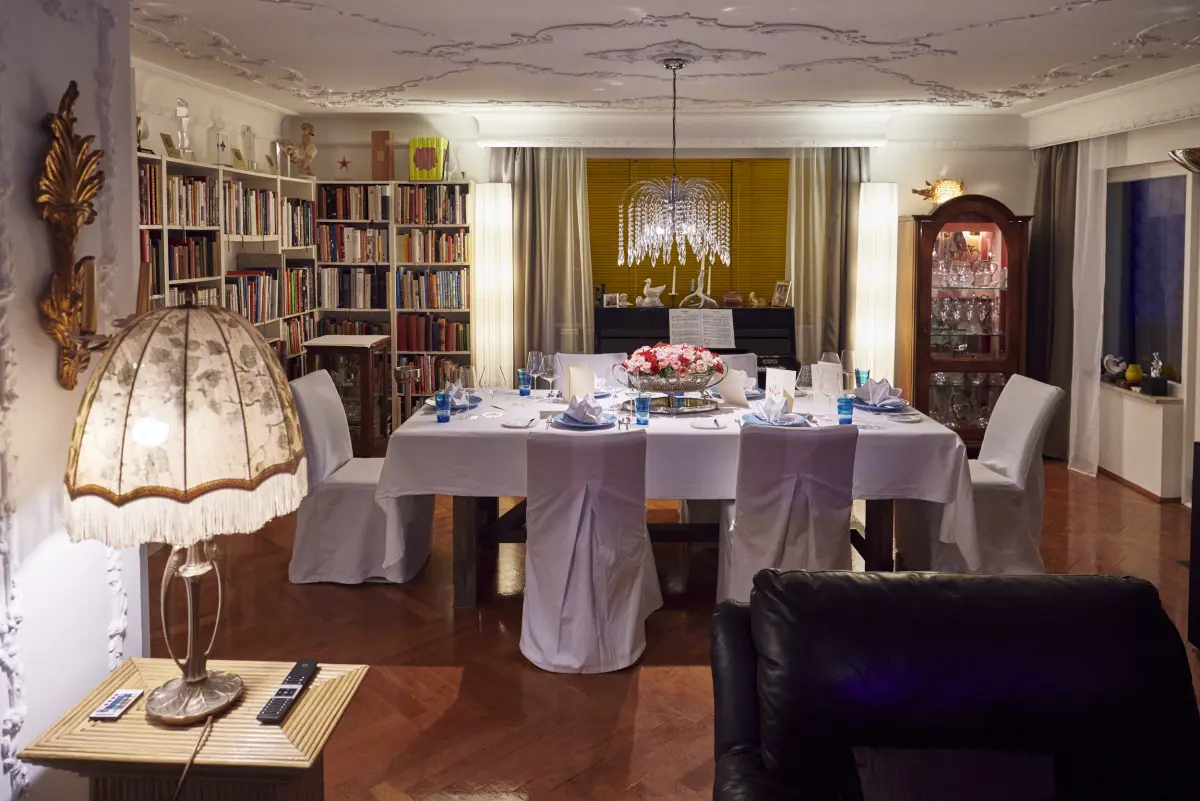
Electricity from conviction
To reduce his carbon footprint, the top chef had a photovoltaic system installed on the roof of his private home twenty years ago. And as you would expect from the meticulous Otto Koch, he recently calculated that he had saved 210 tons of CO2 during this time. Since the system often produces more electricity than is needed in the house during the summer months, it made sense to purchase a storage unit for the excess energy. In the end, the choice fell on a mobile storage unit - in the form of an electric car.
Otto Koch doesn't like noise, he loves silence. So it's no surprise that he particularly appreciates the silent gliding, the contemplative aspect of electric driving. And also the special feeling of being able to travel CO2-free with self-generated solar power.
Otto's "Stromer
When asked why he chose the DS 3 E-TENSE model, the gourmet ambassador replies that he has always been a Francophile and consequently there was no alternative to a French brand for him. Moreover, a premium brand like DS Automobiles would be a perfect match for the sophisticated demands of a top chef... Seriously, it was above all the independent, modern design of the compact SUV and its suitability for everyday use that appealed to him. And his experience so far confirms that he has made the perfect choice for his requirements.
DS Automobiles recently overhauled its all-electric entry-level model and gave it a number of tweaks in the process. Following the facelift, in which chrome elements, for example, were reduced, it now has a cleaner, more streamlined appearance.
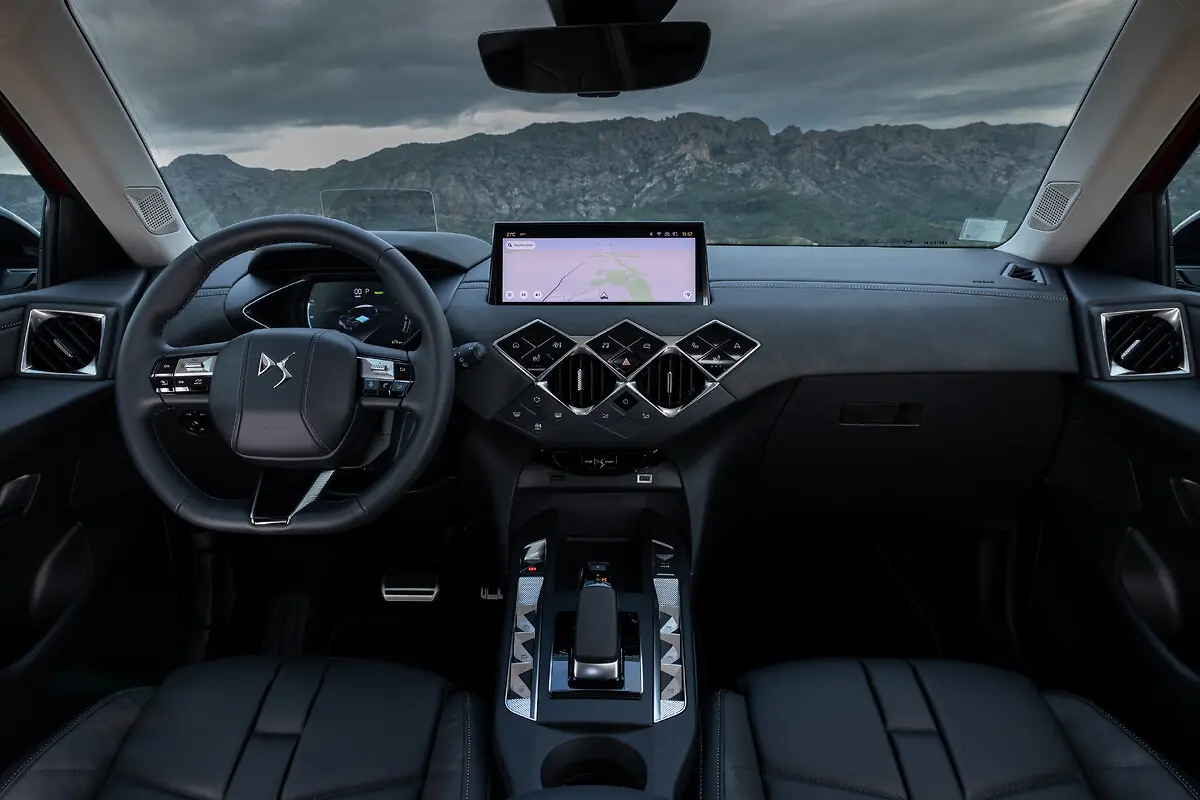
In addition, the comfortable noble Frenchman has been given a new powertrain with 156 hp. Thanks to more intelligent thermal management and a more densely packed 54 kWh battery, average consumption is now between 14 and 16 kWh/100 km, according to the manufacturer. A value that is quite respectable, as is the now communicated range of 374 to 434 kilometers.
https://www.ottokoch.com
https://www.dsautomobiles.de/
Text: Peter Grett
Images:
Images 1-6: Otto Koch
Lead story and Images 7-10: Lutz Dürichen/Touremo
Image 11: DS Automobiles

